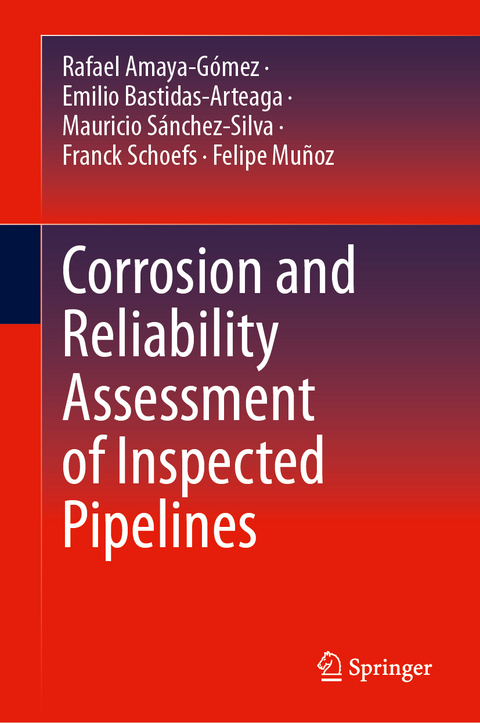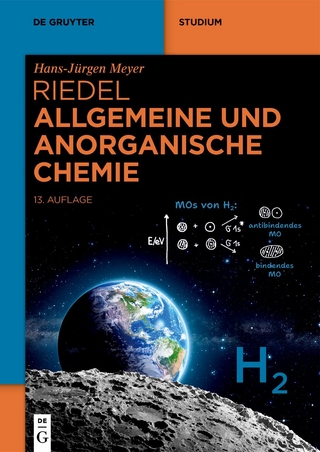
Corrosion and Reliability Assessment of Inspected Pipelines
Springer International Publishing (Verlag)
978-3-031-43531-7 (ISBN)
lt;p>Rafael Amaya-Gómez received his bachelor's degrees in chemical engineering in 2013 and mathematics in 2017 from Los Andes University in Colombia. He earned an M.Sc. in chemical engineering focused on process safety in 2015, also from Los Andes University. He received his Ph.D. in Engineering from Los Andes University in Colombia and the University of Nantes in France in 2020. His experience focuses on analyses related to pipeline mechanical integrity, reliability assessment, risk assessment, spatial variability, stochastic modeling, and data management to profit inspection results from In-Line Inspections. He has worked on national projects in the mining and energy sector, releasing a sectorial Disaster Risk Management Policy for the first time in Colombia, and with local authorities in subjects related to technological and NATECH (Natural Hazards-Triggered Technological Accidents) risk scenarios in Colombia to support further decision-making processes. He has been a lecturer at Los Andes University in subjects associated with process safety, chemical processes modeling, and process plant design. His research has been published as the leading author in several journal papers, international conference proceedings and book chapters.
Emilio Bastidas-Arteaga received his PhD in Civil Engineering from Los Andes University in 2009, a second PhD in Engineering Sciences from University of Nantes (France) in 2010, and an Accreditation to Supervise Research (HDR) from University of Nantes in 2017. He is Professor at La Rochelle University since 2020 where his research work aims at promoting resilient coastal and offshore infrastructure in the face of aging and changing environmental conditions. His research project encompasses three key aspects: probabilistic modelling of deterioration processes and climate interactions, characterization of construction materials and inspection techniques through experimental means, and optimization of design, inspection, and maintenance based on factors like risk of failure and environmental impact. His extensive publication record and involvement in various research projects funded by regional, national, European, and international sources underscore his expertise and significant contributions to the field of reliability and maintenance of deteriorated infrastructure.
Franck Schoefs received his Ph.D. in civil engineering from the ENS Cachan School (France) in civil engineering in 1996 and an Accreditation to Supervise Research (HDR) in 2007. He is the h
Chapter 1. Introduction.- Part 1: Corrosion Of Onshore Pipeline.- Chapter 2. Onshore pipeline basic context.- Chapter 3. The problem of corrosion in pipelines.- Chapter 4. How corroded pipelines fail and how are they modeled?.- Part 2: Uncertainty In Corrosion Modeling.- Chapter 5. Uncertainty in the assessment of corroded pipelines.- Chapter 6. Spatial statistical analysis: A "blind-approach".- Chapter 7. Identification and modeling of new defects.- Chapter 8. Modeling reliability for pipeline corrosion.- Part 3: Real Case Study Application.- Chapter 9. Case study: Description and analysis for corrosion main features.- Chapter 10. Spatial statistical "blind-approach" results.- Chapter 11. New defects between inspections and their spatial features.- Chapter 12. Spatial and time-dependent reliability assessment: Identification of critical segments.
| Erscheinungsdatum | 22.11.2023 |
|---|---|
| Zusatzinfo | XXIII, 285 p. 154 illus., 139 illus. in color. |
| Verlagsort | Cham |
| Sprache | englisch |
| Maße | 155 x 235 mm |
| Gewicht | 624 g |
| Themenwelt | Naturwissenschaften ► Chemie ► Anorganische Chemie |
| Technik ► Maschinenbau | |
| Schlagworte | Corrosion • Defect's matching • Defect’s matching • In-Line Inspection (ILI) • Inspected pipelines • Onshore Pipelines • spatial variability • system reliability • Uncertainty |
| ISBN-10 | 3-031-43531-1 / 3031435311 |
| ISBN-13 | 978-3-031-43531-7 / 9783031435317 |
| Zustand | Neuware |
| Informationen gemäß Produktsicherheitsverordnung (GPSR) | |
| Haben Sie eine Frage zum Produkt? |
aus dem Bereich


